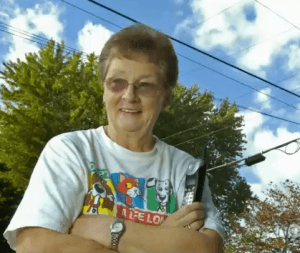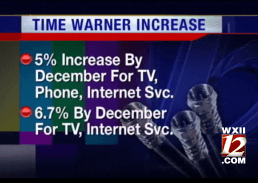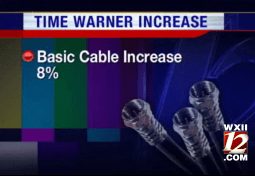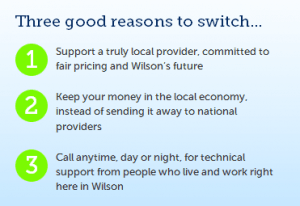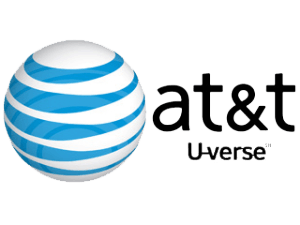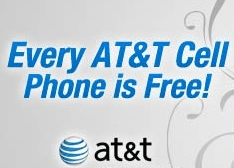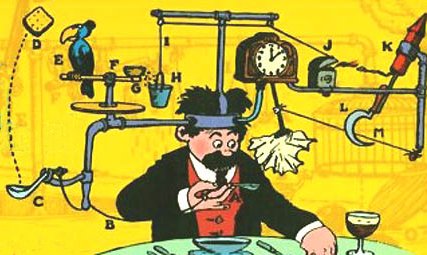 Don’t want blazing fast fiber optic broadband speeds? Unhappy with fiber optic quality video and want to go back to putting a satellite dish on your roof? If the answer to either question is “yes,” Frontier Communications has good news for you.
Don’t want blazing fast fiber optic broadband speeds? Unhappy with fiber optic quality video and want to go back to putting a satellite dish on your roof? If the answer to either question is “yes,” Frontier Communications has good news for you.
The phone company, which assumed control of a handful of communities formerly served by Verizon’s fiber-to-the-home FiOS network, has announced it will begin marketing DSL and satellite TV services to its fiber customers.
Frontier CEO Maggie Wilderotter told investors on a third quarter results conference call that FiOS broadband could be too expensive.
Wilderotter noted Verizon would not allow customers in a FiOS neighborhood to buy DSL service, which leaves budget-minded customers behind.
“Now, FiOS starts at like 50Mbps and it’s very expensive. It’s like $50 a month for a customer. So they left a whole host of customers behind from an affordability perspective who didn’t need that kind of capability on broadband.” Wilderotter explained. “We have just over the last 30 to 60 days opened up DSL in all of the FiOS markets to give the customer choice. So the customer can choose whether they want FiOS broadband or they want high-speed Internet service, typically, and in those markets we’re offering around 6 to 7Mbps.”

Time Warner Cable occasionally runs promotions helping customers break free from Frontier's multi-year service contracts.
Of course, Frontier FiOS starts at 15Mbps — not 50, and that costs $50 a month for standalone service. For $99, ($89 in Verizon FiOS areas), customers can get broadband, cable TV and unlimited phone service. Frontier’s “Turbo” DSL service is priced at $40 a month for up to 7.1Mbps service.
Wilderotter also noted their FiOS customers can also choose to skip fiber video and go with DirecTV.
“We think that customers should be able to choose what kind of video they want,” she said. “We have aggressive offers in the market for both DirecTV and for FiOS video, but in our vernacular, what we care about is keeping the customer, getting the customer to take more products and services from us and making sure the customer is happy with the choice.”
Wilderotter said Frontier is prepared to tolerate more congestion on its DSL circuits than Verizon permitted, which opens the door to potential traffic slow-downs down the road.
“We’ve opened up in many of these locations the opportunity to sell high-speed service up to 95% capacity on the equipment that we have out in the field. Verizon had set a parameter at 75%,” Wilderotter said.
The company continues to study whether Frontier FiOS is worth maintaining or expanding outside of the Verizon territories where it was originally constructed.
“We are still evaluating it from a financial perspective and a customer perspective, and from a cost perspective and a revenue perspective,” Wilderotter told investors. “In terms of what that does for us overall, what it does for churn, how much does it really cost to extend this capability in the markets that we’re in today — we think that analysis and evaluation will go on through the first quarter [of 2011] and then we’ll be able to make some [decisions] in terms of what we want to do with FiOS from an expansion perspective or a maintenance perspective.”
Frontier Communications CEO Maggie Wilderotter answered questions about broadband expansion and the impact of the fall elections on telecommunications policy in Washington. (11 minutes)
You must remain on this page to hear the clip, or you can download the clip and listen later.
<
p style=”text-align: center;”>

Frontier's largely rural service areas provide a captive audience for the company's DSL broadband service.
In the near term Frontier has several plans to get more aggressive in the marketplace to meet its target goal of losing only 8 percent of their customers per year — a goal that illustrates legacy phone companies are still on a trajectory towards fewer and fewer customers:
- Don Shassian, executive vice president and chief financial officer of Frontier reports expansion of DSL remains a top priority for Frontier. The company is on track to deliver access to 300,000 additional homes by the end of the year. Verizon delivered access to 64 percent of Frontier’s acquired territories. Frontier wants to get that number up to 85 percent. But part of that target is not just expanding service to unserved areas. It’s also trying to win back customers lost to other providers through promotions and incentives.
- Frontier plans to resume aggressive promotions in the coming weeks and months, including its “free Netbook” promotion, which provides a Netbook computer to new customers signing up for several packages of services, committing to remain with Frontier for at least two years.
- Frontier intends to push “price protection agreements” on as many customers as possible. Their “Peace of Mind” program locks customers into multi-year contracts with stiff cancellation penalties. Wilderotter noted: “I think, as you know, in our legacy markets, 96% of all of our sales are on a price protection plan and we have close to 60% of our residential customers on a one-, two- or three-year price protection plans. That number is below 15% in the acquired markets. So we’re also driving for price protection plans with every sale that we’re doing in these new markets as well.” Such contracts dramatically discourage a customer from disconnecting Frontier, because fees for doing so can exceed $300 in some cases. Frontier has been heavily criticized by some customers and State Attorneys General for deceptive business practices regarding contracts.
Frontier continues to enjoy a lack of solid cable competition in its largely rural service areas. Shassian reports Comcast competes with Frontier in only about 32% of homes in some areas, Time Warner Cable in about 23%, and Charter below 15%. With reduced competition, Frontier often represents the only broadband option in town.
Frontier is also spending an increased amount of time coping with copper thefts, especially in West Virginia where the company is warning would-be thieves it will prosecute to the fullest extent of the law.
“Damage to our facilities can affect communications access in an emergency, increase company costs and consumer rates, and disrupt community phone and broadband connections,” said Lynne Monaco, Frontier’s Director of Security. “When network connections are severed by copper thieves, it endangers customers and emergency responders and poses significant risks of personal injury and property damage.”
Just last week, West Virginia state police solved another copper caper that disrupted service for some customers.
The Charleston Daily Mail reports:
Trooper A.B. Ward from the South Charleston detachment went to the Fishers Branch area of Sissonville last Thursday afternoon when a Frontier worker discovered a section of the communications line missing. The worker found that 300-feet of the 400-pair line, valued at about $5,000, was missing, according to a complaint filed in Kanawha Magistrate Court.
A trooper who had worked on a similar investigation told Ward to check the home of Ervin “Tubby” Page, 49, where troopers had previously found evidence of wire burning. Ward went to Page’s home, described as a Goose Neck travel trailer parked next to the Guthrie Agricultural Center in Sissonville, and found three burn barrels about 50 feet in front of the trailer. One of them was on fire.
Page’s girlfriend Stephanie Marie Burdette, 25, of Cross Lanes, was at the scene when the trooper arrived. Ward spoke to her then checked out the barrels where he found aluminum wrap, which is used to cover the copper communications wiring, and pieces of copper cabling, the complaint said.
Frontier customers are encouraged to report any suspicious activity around telecommunications equipment and facilities by calling the company’s toll free security line 1-800-590-6605. Anyone witnessing a theft in progress should not confront the suspects but should immediately call 911 and then call Frontier. Vehicle and suspect descriptions are very useful. This is a community safety problem, and the cooperation of the public is critical.
[flv width=”500″ height=”395″]http://www.phillipdampier.com/video/WOWK Charleston Copper Thieves 11-15-10.flv[/flv]
WOWK-TV in Charleston covers Frontier’s difficulties with copper wire thieves across the state of West Virginia. (1 minute)


 Subscribe
Subscribe
